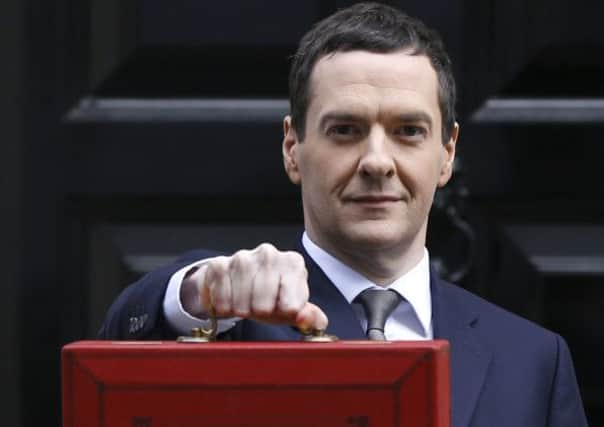John McLaren: Budget 2015 a tame affair


The big change, speaking in budgeting terms, was the shift in 2019-20 from building up a Budget surplus to increasing spending on public services instead.
So while the profile with regards to day-to-day spending on services in the UK (and Scotland) is still one of deep cuts in 2016-17 and 2017-18, by 2019-20 there is now real terms growth of 4 per cent, rather than continued cuts.
Advertisement
Hide AdAdvertisement
Hide AdThe rationale for such a famine to feast approach to public service spending in just a few short years is difficult to understand.
For Scotland, the main news revolved around policies and projections in relation to the North Sea.
As requested by many, including the Scottish Government, the rate of tax applicable was reduced and investment initiatives were bolstered.
Whether this is enough to encourage future investment remains to be seen. Equally important, but not addressed by these measures, is the threat to the existing infrastructure if the big players decide to withdraw.
This is a subject that will need to be returned to in future Budgets.
North Sea revenues have been revised downwards, yet again.
This is partly due to the lower oil price – lower than projected even as recently as last December ($65 versus $75 back then) – but also due to the impacts of the lower tax rates that will now be applied.
A falling oil price can help the UK as it boosts economic growth, which in turn increases onshore corporation tax revenues and can more than offset the decline in offshore taxes.
Advertisement
Hide AdAdvertisement
Hide AdHowever, the impact of a falling oil price is more complicated for Scotland, especially given the Smith Commission proposals for devolving income tax, due to the potential for North Sea related employment and wage cuts in the North-east.
Much of yesterday was shadow boxing, the real fight comes at the time of the next Spending Review, likely to take place over the summer. This should decide spending for at least the next three years and so determine the winners and losers in what will remain a very tight settlement, regardless of who wins.
John McLaren is an economist for Fiscal Affairs Scotland.